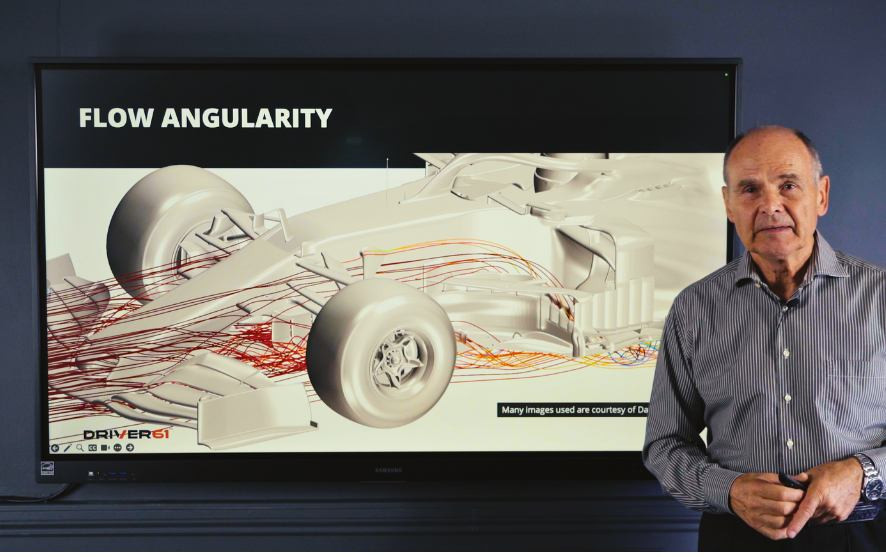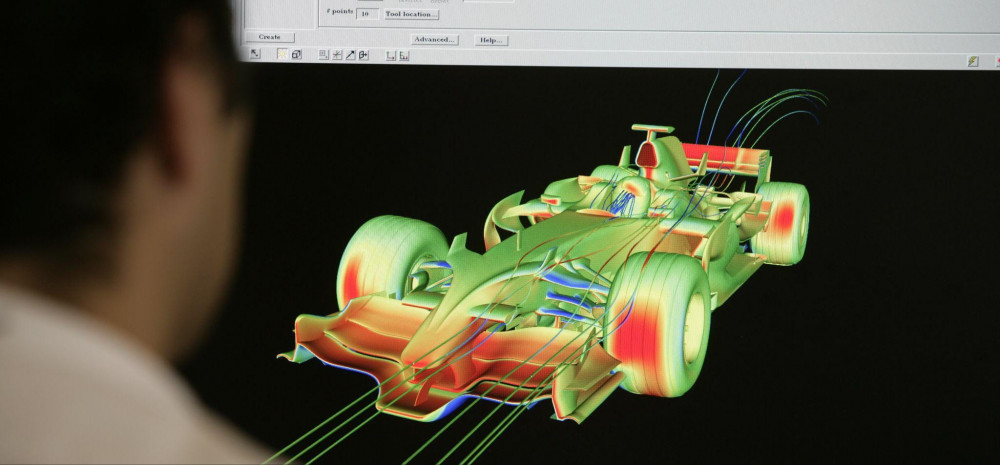As you’re probably aware, finding useful salary benchmark data in the Motorsport industry is pretty difficult. Teams don’t want to share the salaries and compensation packages, particularly at the sharp end of Motorsport.

When we announced our plan to survey the Motorsport industry, we got a lot of interest quickly. Two separate F1 teams reached out with an interest in our work. When you get an email from an F1 team, you know you’re doing something useful. Hopefully, you agree that this is the case based on what we found.

What’s in the data?
Firstly, let’s take a look at the content of the data. It was an anonymous survey, with 466 submitted salaries by job title and location. We didn’t record any personally identifiable information and the precise data remains securely stored and completely anonymous.
Thanks to all of you who participated. The survey is still live, so it’s probable I’ll update this article at a later date.
We surveyed 466 motorsport industry professionals across 34 countries, providing a great start in uncovering compensation trends across the industry. The UK emerges as our primary data source, with 260 respondents, followed by the United States, and the EU.

While we’ve retained the original salary numbers, we’ve normalised the currencies to GBP and USD.
Yes, Gender is a big issue.
Before we get to the actual job titles and salaries, there are a few issues to highlight. Notably, the huge gender disparity between male and female employee counts in Motorsport.

Only 10% of our respondents identified as female. As an industry, this is something I hope to see change soon thanks to initiatives from organisations like Women in Motorsport NA and Females in Motorsport.

Enni Mälkönen and team-mate Sami Pajari win the 2024 WRC2 championship
With the imbalance of male/female employee numbers, came a surprise: we found in the data that pay equality isn’t as big an issue as we might see in different industries.
As an example; the Female Race Engineers in our data command higher average salaries compared to their male counterparts. Hopefully, experience and performance plays the key role here rather than other, irrelevant factors.
Most Common Roles and Pay Ranges:
Race Engineer
Salary Range: £41,800 - £146,200
Average: £69,472
Mechanic/Race Mechanic
Salary Range: £28,000 - £95,000
Average: £44,874
Aerodynamicist (including Senior roles)
Salary Range: £35,000 - £162,000
Average: £73,396
Premium Positions:
Everyone seems to think that there’s a lot of money in motorsport, save for a few, this is not the case! However, there are ways to earn the big salaries, with the highest-paying roles in motorsport being:
Technical Directors: £120,000 - £3,250,000
Chief Engineers: £190,000 - £230,000
Head of Department roles: £116,000 - £175,000
Yes, there are some people in F1 on astronomical salaries. As far as we can tell, the only way to get on the big salaries is via success – you’ve quite simply got to be the best on the planet at your particular discipline. Motorsport is so competitive and results count for everything.
Career progression.
I recently read “How to Win a Grand Prix” by Bernie Collins who describes her career progression in a great degree of detail.

Career paths can change and you need to be flexible enough to take on whatever challenge gets thrown at you. Bernie’s advice is to do your best to build experience in a variety of roles across the team. This makes you more empathetic to the needs of different departments while furnishing you with an understanding of how the job gets done.
An obvious career progression path came out in the data for Engineers, starting at the graduate level:
Engineering Path:
Graduate Engineer: £33,000 - £38,000
Engineer: £45,000 - £65,000
Senior Engineer: £63,000 - £96,000
Lead/Head Engineer: £85,000 - £125,000
These days, a degree in engineering, aerodynamics, fluid dynamics is a must if you’re planning to get near the sharp end of the way a team operates.
However, interests and hobbies go a long way to providing a strong evidence base of your competencies – as we’ve discovered many times in our podcasts on our careers hub.
The path to higher salaries in Motorsport
Ultimately, the path to higher salaries in motorsport is heavily influenced by experience. Our data shows that F1 experience commands a significant premium - engineers with F1 experience typically earn 20-30% more when moving to other series.
The entry point for many is through placements and internships, which our data shows typically pay £23,000-£27,000 in the UK and $45,000-$55,000 in the US.
The jump from junior to senior roles typically requires 5-7 years of experience, with senior roles often requiring proven success in lower formulae.

Image: Jacob Ebrey
Emerging industry specialism opportunities
The motorsport industry is rapidly evolving, with new specialised roles commanding impressive salaries.
Machine Learning Engineers in higher technology environments are earning £70,000-£85,000 in the UK, while Simulation Development Engineers command $103,500-$150,000 in the US.
Software development roles, particularly in vehicle modelling and data analysis, are increasingly crucial, with salaries matching or exceeding traditional engineering roles.
The race weekend
Our survey revealed interesting patterns in employment types. Race weekend roles often command premium rates - Race Engineers working primarily at events earn 15-20% more than their factory-based counterparts.
Contract positions, particularly in aerodynamics and simulation, can command day rates equivalent to an annual salary of £150,000-£200,000, without, of course, the traditional benefits associated with an employment contract.
Season-based contracts are common in customer racing programs, with salaries typically compressed into 9-10 month periods.
Geographic Analysis
We looked at the average salary in our main geographic locations, and it’s probably not a surprise that the UK lags behind in salary growth. UK salary growth has been pretty anaemic over the past decade, despite record levels of economic inflation.
There are some very low-paid mechanics in the UK too, with salaries for “No.1” mechanics at a National level (lower single-seater formulas such as GB3 that start at £23,000 for an experienced race mechanic).
The US and Germany have the higher average salary ranges in our industry, and the UK appears to be the worst paid location in Motorsport, despite it being very much at the centre of the industry.
United Kingdom: £48,145 (see all UK motorsport jobs)
United States: £80,544 (see all US motorsport jobs)
Germany: £78,873 (see all Germany based motorsport jobs)
France: £48,655 (see all France based motorsport jobs)
Championship impact on salary
Formula 1 positions command the highest salaries - typically 30-40% above equivalent roles in other series.
However, our data shows customer GT3, Endurance and WRC programs often offer competitive packages, particularly at senior levels.
Team size significantly impacts salaries; the largest teams (100+ employees) offer salaries averaging at least 25% higher than small teams, with additional performance bonuses ranging from 10-30% of base salary.
What next?
As I mentioned, our survey is still I've and we're still collecting data. But let me know - what are your questions? How can we make our surveys more useful to candidates and recruiters? Feel very welcome to contact us with your suggestions.
In the meantime, here's our full Motorsport salary survey (consolidated by job detail) view:
[motorsport_salary_table]




